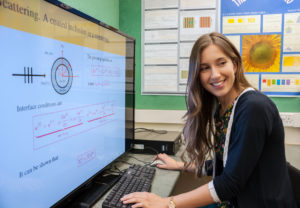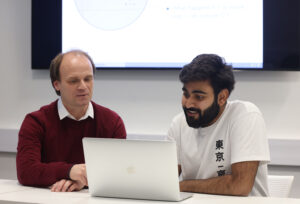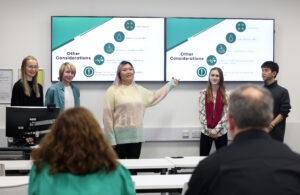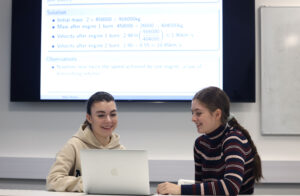In the second and following years of study, there is a wide range of modules. In year two, you will choose some compulsory and some optional modules. Please note that we regularly review our teaching, so the choice of modules may change.
Towards the end of year two, semester two, you will be asked to choose one of the following four pathways:
- Applied Mathematics (AM)
- Pure Mathematics (PM)
- Stochastics, Probability and Operational Research (SPOR)
- Theoretical Physics (TP).
Each pathway is a coherent collection of modules which cover a particular area of mathematics.
It will be important to consider which pathways you might be interested in following in year three when making your year two module choices. You should ensure that you have the necessary prerequisites:
- Applied Mathematics (AM) pathway: MATH226 is recommended. Further suitable modules include MATH228
- Pure Mathematics (PM) pathway: MATH247 is strongly recommended. MATH242 is recommended
- Statistics, Probability and Operational Research (SPOR) pathway: MATH254 is compulsory, MATH269 is recommended. Further suitable modules include MATH226, MATH242 and MATH260
- Theoretical Physics (TP) pathway: MATH228 is compulsory.
For students who did study at XJTLU, module MATH241 is compulsory. Modules MATH244, MATH221 and MATH242 are not available.
On the 2+2 programme, you'll study your third and fourth years at the University of Liverpool. These will be year two and year three of the University of Liverpool's programme of study.
Programme details and modules listed are illustrative only and subject to change.








